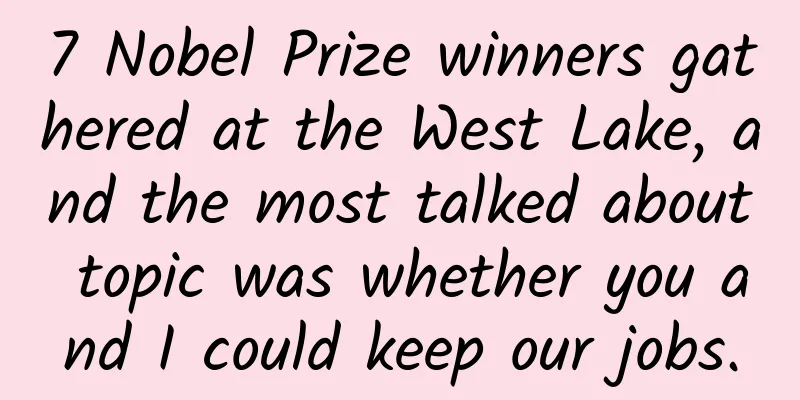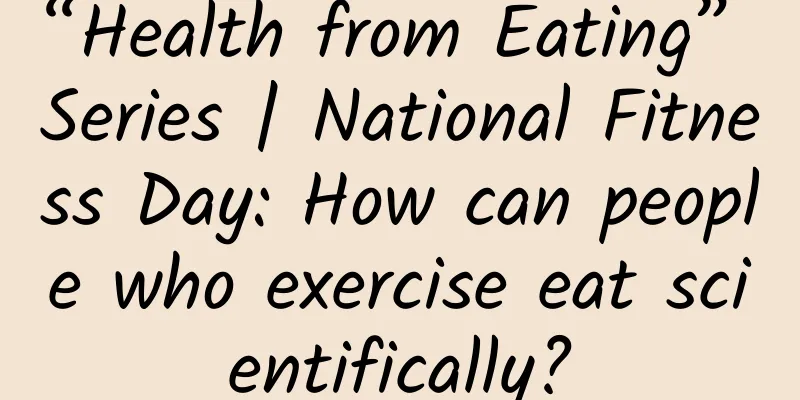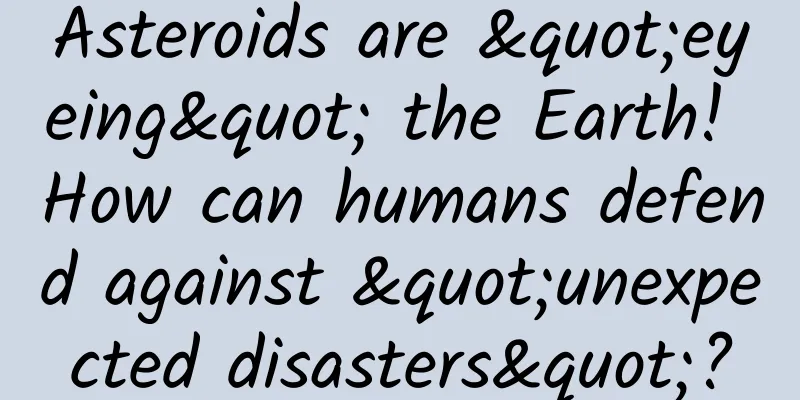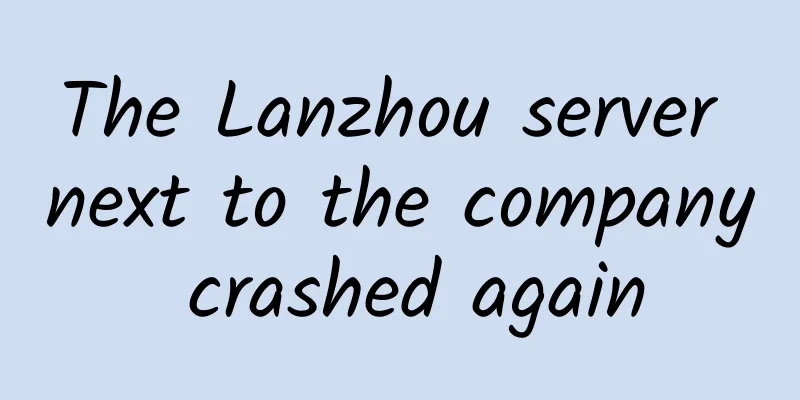7 Nobel Prize winners gathered at the West Lake, and the most talked about topic was whether you and I could keep our jobs.

|
In order to find out the reason why some strange black stones suddenly appeared on the surface of the earth and the moon, humans sent a spacecraft to Jupiter. On the spacecraft, a high-IQ computer that manages the flight malfunctioned and killed the hibernating astronauts. Only one survivor dueled with the computer in the vast space... This is a scene from the classic science fiction film "2001: A Space Odyssey". Will the scenes in the movie happen in reality? Will artificial intelligence eliminate or create more jobs? Can the virtual world make humans happier? … The emergence of artificial intelligence, especially ChatGPT, has brought great imagination to mankind and the industry, but also a sense of uneasiness and fear. So much so that three months ago, more than 1,000 Silicon Valley scientists including Max jointly called for an immediate cessation of AI research. So, in the opinion of the Nobel Prize winner in economics, is the emergence of artificial intelligence a blessing or a disaster for mankind? Recently, seven Nobel Prize winners in economics, as well as pioneers and leaders in cutting-edge disciplines around the world, representatives from the business community, etc., attended the 2023 Alibaba Luohan Hall Digital Economy Annual Conference on the shores of West Lake in Hangzhou. The theme of this year's conference is "Looking for the Future That Is Happening." Should we stop making AI smarter? Eric Maskin is the Adams University Professor at Harvard University. In 2007, he shared the Nobel Prize in Economics with two other economists for "laying the foundations of mechanism design theory." Professor Maskin is also a member of the American Academy of Arts and Sciences, the Econometric Society, the European Economic Association, and the British Academy, as well as a member of the Luohan Hall Academic Committee. Eric Maskin said that many people are now worried that when computers have their own thinking and may have ideas that are not completely consistent with humans, will the scenes in the movie be reproduced? "With the emergence of AI and ChatGPT, we can see how it threatens parts of our lives and society to a great extent, especially in terms of information and how to analyze information." Therefore, Eric Maskin suggested that artificial intelligence needs more regulation. "In my opinion, most regulations should have certain restrictions, such as allowing computers to obtain data on one side, rather than using technology to obtain the data you want without any constraints." Christopher Pissarides holds a similar view, but he believes that slowing down the technological progress of AI technology as a whole would be a big mistake. Christopher Pissarides is the founder of the matching theory of labor economics. In 2010, he shared the Nobel Prize in Economics with Professor Dale Mortensen of Northwestern University and Professor Peter Diamond of MIT. Christopher Pissarides said: "The challenge now is not to slow down this process, but to ensure that we can use the rapid development to form good applications and continue to move in the right direction, such as feeding back to the development of society, rather than letting AI destroy the entire society." So his suggestion is that when artificial intelligence makes any mistakes or moves in the wrong direction, humans need to correct it in a timely manner. At the same time, the public should be more involved. The "Father of AI" once predicted that radiologists would be replaced by machines Scientists conducted a study on more than 20,000 occupations Geoff Hinton, known as the "AI Godfather of the Deep Learning Triumvirate," predicted in 2016 that machine learning has done so well that in the future machines may do better than radiologists. In this regard, Erik Brynjolfsson, director of the Digital Economy Laboratory at the Stanford University Artificial Intelligence Institute, has proved through a large number of studies that radiologists will not be replaced by artificial intelligence. At Carnegie Mellon University, he once weighted more than 18,000 specific occupations and more than 950 occupations according to the importance of the task technology and scored them on a five-level scale to determine whether artificial intelligence or machine learning can completely replace these jobs, such as whether they can read medical data and pictures well, and whether they can replace bakers in making cupcakes. The final results of the study found that machine learning or artificial intelligence did not do a better job than radiologists at reading and interpreting images. "Usually patients will undergo some examinations or require sedation during and after surgery. In these areas, radiologists do have their own expertise, and a lot of this work cannot be done by machine learning for the time being." Eric Brynjolfsson said that machine learning does have excellent technical capabilities, but humans themselves also have indispensable capabilities. Some jobs are disappearing But many new job opportunities have emerged Although machines have not replaced radiologists, Eric Brynjolfsson has to admit that as technology continues to advance, more and more individuals will be affected. "About 60% of the U.S. workforce will be affected if they only do work related to trends or information. Similar situations will also occur in China and Europe, where most of the workforce will be affected by machines." As shown in the blue bar chart, artificial intelligence has already achieved 90% of the completion of 100% of the tasks in some jobs. However, Christopher Pissarides put forward a more positive view. He said that the paper published ten years ago concluded that 47% of jobs would be affected by artificial intelligence in the future. However, ten years later, it was found that the development of artificial intelligence actually created more jobs. Because historical experience shows that when new technologies and equipment replace thousands of industries and even make thousands of people unemployed, new industries emerge. This is actually a process of re-matching the labor force. So who are most vulnerable to the impact of artificial intelligence? Eric Maskin said that our research shows that the 1% of people at the top of the pyramid will definitely benefit from the rapid development of technology, while the 1% of people at the bottom will be hit the hardest, and the 20% of people at both ends may be affected to varying degrees. "There are also some unskilled jobs and occupations that may need constant retraining and reshaping of skills, otherwise they may be useless in the future." Eric Brynjolfsson also conducted an interesting experiment and found that more and more industries are receiving feedback and support from artificial intelligence. The experiment conducted by researchers at Stanford University and Massachusetts Institute of Technology in the United States divided 5,000 customer service staff of a Fortune 500 software company into two groups. One group was allowed to use trained AI tools (based on a large number of successful customer service conversation training), and the other group did not use AI tools to test the impact of generative AI tools on company productivity within one year. The results of the study found that with the help of artificial intelligence tools, the company's "least skilled" new employees were able to complete their work 35% faster. After receiving the help of artificial intelligence tools, the new employees' work ability was improved faster than those who did not use the tools. The final two experiments found that the group using AI was 14% more productive, on average, than workers without the tools. The “least skilled” workers benefited the most. Eric Brynjolfsson said that the impact of artificial intelligence on groups is not equal. From the current point of view, low-wage workers are more affected. High wages and high salaries are less affected. Thomas J. Sargent, the 2011 Nobel Prize winner who has experienced DingTalk, said that digital tools like DingTalk will be the key to improving productivity for companies and employees in the era of artificial intelligence. Professor Thomas Sargent, 82, won the Nobel Prize in Economics in 2011 together with Professor Christopher Sims. Thomas Sargent is a particularly lovely grandfather. In 2018, a reporter from Chengshi Interactive interviewed him and said that he wanted to have a developed body and a developed brain. This is what he required of himself. At the age of 76, Thomas Sargent insisted on working out in the gym every day, lifting barbells, and then looking at data and studying physics and mathematics. His 99-year-old father is a naughty old man. He has two tablets and a computer, and he plays with the computer every day. "It's on all day long." Zhang Yong: Humans will definitely find a way to live in harmony with artificial intelligence and machines “Will artificial intelligence eliminate or create more jobs?” “Can the virtual world make humans happier?” “Will digital technology make the world more divided or more integrated?”… In yesterday's "Opportunities and Challenges of Artificial Intelligence" session, Zhang Yong, who had just released a letter to all employees announcing that he would serve as the full-time chairman and CEO of Alibaba Cloud Intelligence Group from September 10 and focus on the future development of Alibaba Cloud, and three Nobel Prize winners talked about artificial intelligence with great interest. Zhang Yong believes that artificial intelligence will bring new development to the entire society, and generative artificial intelligence will also bring new growth opportunities to all walks of life, and even some new jobs and new industries that are completely unimaginable now will appear. Just like when the mobile Internet first appeared, no matter how imaginative a person is, he could not accurately describe the current picture. Zhang Yong's view on the future of artificial intelligence is: "Artificial intelligence will be everywhere, but I believe that humans have more wisdom than machines and will definitely find a model to live in harmony with artificial intelligence and machines." Luohan Hall Releases "Ten Questions for the Future" The annual “Top Ten Questions About the Future” released by Luohan Hall in collaboration with the world’s top minds. "In the digital age, will the scale of enterprises become smaller or larger?" This is not only an economic proposition, but also a proposition about the future social form; "Does privacy protection hinder or promote the flow of data?" Some of the questions are counterintuitive but thought-provoking... It can be said that these ten major issues are both realistic and future-oriented, academic and public. In the view of Michael Spence, the 2001 Nobel Prize winner, human history has proven that technological progress will not reduce the number of jobs, but may shorten working hours, "which will be a very important long-term trend." As for whether the virtual world can make people happier, 2016 Nobel Prize winner Bengt Holmström believes that this depends more on whether people can have deeper connections with their community, family and friends, rather than on factors such as money. Thomas Sargent believes that a common "language" brings connections. Digital technology uses another world language besides Chinese and English. This globally shared language shares common values and, if used well, will make the world more integrated. Shen Jihui, reporter of Metropolis Express and Orange-Persimmon Interactive |
<<: Popular Science Illustrations丨What are the scientific methods of afforestation?
Recommend
iOS 15.4 released: What's new in iOS 15.4
iOS and iPad OS 15.4 are huge updates that bring ...
How much is the commission for Douyin store? Douyin Store Commission Deduction Charge Standard
This article mainly introduces the commission of ...
Humans have 145 foreign genes. Why can genes be transferred across species?
There are genes from other species in the genome ...
Short videos bring hot-selling products: What is the charm of low-priced products?
When I was chatting with a friend yesterday, we t...
What is quantum secure communication? (Part 1): What you think is a password is not actually a password
Produced by: Science Popularization China Author:...
[In-depth Revelation] Analysis of Internet Financial Product Operation Strategies!
The main product model of Internet finance is rel...
Break the 24-hour unspoken rule and create truly innovative apps
Some people describe the past 2014 as a good era ...
Hypertension medication varies from person to person. Genetic testing can help you shorten the "hard road" of choosing hypertension medication.
Author: Chen Congqin, Sha Zihua, and Ni Erru, Chi...
How will China's robotics industry take the lead in the battle for discourse power under the market size of 600 billion yuan?
Artificial intelligence and the robotics industry ...
Which is cooler, iced coffee or iced cola? The correct answer is...
On hot days, besides air conditioning, the best t...
After becoming emo, my brain has become smaller...
Audit expert: Yin Tielun Deputy Chief Physician, ...
An article to understand the product logic and strategic layout behind the Alipay 9.0 revision
[[140494]] About the Alipay 9.0 revision: If you ...
Which Shanghai mini program development company is the best? Shanghai mini program development and production company
In 2017, WeChat launched a new product, mini-prog...
Short video operation: Vlog melee, who can break through?
After posting the video "Going to the Superm...
The flames emitted by rockets are over 3000℃, how come they don't burn themselves? They have ways to cool down
Relying on the high-temperature flame ejected fro...









